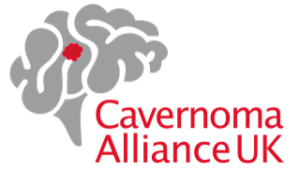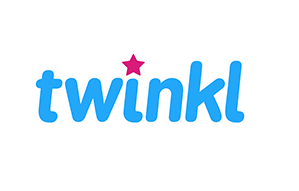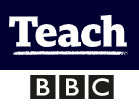Coronavirus (Covid 19) has changed many aspects of our daily lives. Balancing going to work or working from home with home schooling and family life is not an easy task, so don’t be too hard on yourselves. This is a new way of life for many and there is nothing to say that you have to become a first-class teacher overnight.
We need to take care of ourselves as well as our children and the rest of the family.
We have spoken to a number of teaching staff, done a little research and have put together a few resources which may help you to help your children. Hopefully it might take the pressure off by showing you some new ideas, offer support and show you that you are doing a great job.
Online Learning Resources
BBC Bitesize
- Lockdown learning: How BBC Bitesize can help you learn on TV and online (Click here)
- Five ways to manage your well being as a parent during lockdown (Click here)
- Five ways to motivate your teen to study at home (Click here)
- Lockdown Birthday? How to help your children avoid the let-down (Click here)
theschoolrun.com
Over 250,000 parents are already getting free worksheets, activities and offers from the SchoolRun.com. You can personalise the information to match the school year of your child, from nursery age onwards.
- 11 top tips for combining home schooling with working from home (Click here)
- How to structure your day during home schooling (Click here)

Classroom secrets (Years 1-6)
This resource hub is providing free, fun, practical and interactive learning resources for children to aid parents in this difficult time. The activities on offer come in the form of interactive games, video tutorials and downloadable home learning packs.
BBC Teach Live lessons
You don’t have to recreate school at home. However, the live lessons on BBC Teach can help you and your child if you are looking for a way to add a bit of routine into their day. Their activities are suitable for children aged 3-16. These pre-made classes are all run by qualified teachers.
Parentkind
Full of clear, usable advice for parents during lockdown. It includes useful stuff like what to expect from your kids, and how (and why) to make the clear distinction between home-schooling and supporting learning. They also offer tips on how to create a good learning environment for children of all ages.
For example: If your child is at secondary school, they recommend you don’t watch over your child to keep them focused. Instead, you can start the day with a conversation about the work to be done, and agree regular time slots for study.
EasyPeasy
If you are the parent of a young child (up to 5 years) then EasyPeasy offers playful learning where the key is to help your young child feel fresh, engaged, and focused. Well… for five minutes, at least! It includes tips and daily ideas for games. Usefully, you can also track progress to see the difference you’re making. This is a really nice touch for parents who might feel like they have no idea how to measure their child’s progress in these difficult times.
Phonicsplay
This facility has been made free to use during the coronavirus period and parents don’t even need to subscribe to avail themselves of the fun resources and activities on offer. This resource teaches reading skills to younger children using phonics (or sound). If your child loves aliens or pirates, this is a must. There is also a section for parents to help you get to grips with the teaching process.
The Maths Factor
The tagline for this resource is… “Let Carol Vorderman teach your child maths during this difficult period. “Now you know your child is in safe hands when it comes to topping up their maths understanding! This site featuring Carol Vorderman’s video classes for kids is free to join, and its activities – which are suitable for 4-12 years – are matched to the National Curriculum.
Young Professionals skills building
Skills building programme is more for aged 14 and up, and it won’t supplant your home learning. But if you want your older children to start thinking about careers and building their life and work skills, you can ask them to sign up to our Young Professional training. It’s entirely free, and your child will get a weekly newsletter full of skills-building tips and opportunities to help them be the best they can be.
Spelling Training
If you’re looking to brush up your child’s spelling but aren’t sure where to start, Spelling Training is a simple-to-navigate tool to aid you when teaching children in KS1 and KS2. It creates spelling practice lists, tests and word games from a drop-down menu of subjects such as colours, the human body, musical instruments, irregular verbs and popular songs.
The British Museum
Although the actual museum has of course temporarily closed its doors, that doesn’t mean we can’t still access its enormous wealth of knowledge. It has created an interactive learning tool to allow you to visually explore history across the five continents through its artefacts; Asia, Africa, Americas, Europe and Oceania which goes from modern day all the way back to 2000 BC.
In it, you can pick from themes such as art and design, religion and beliefs and trade and conflict to allow kids to learn from all aspects of the artefacts and information currently housed in the museum. It’s suitable for KS2 and above.
National Geographic Kids
This has a variety of facts, games, quizzes and activities to set KS1 children, such as finding plastic pollution solutions, how to make paper straws and facts about species of animals. There’s also a detailed section dedicated to explaining the coronavirus to children and how it can spread across the globe and why travel isn’t permitted, which is a helpful tool in deciphering a strange, complicated time.
Internet Geography
Developed by geography teacher, Anthony Bennett, Internet Geography is a GCSE-level resource which covers AQA syllabus, such as physical landscapes, natural hazards, population and urban issues. The site also includes mock AQA exams, quizzes and case studies across ecosystems, coasts, climate change, earthquakes, environmental problems and erosion and weathering. Each week, there’s a different free homework task, called Geography in The News, that encourages students to engage with news stories that have a geographical element.
Math Playground
This hosts colourful games to entertain young children working at a KS1 and KS2 level. It covers sums, shapes, graphs, geometry and logic. We would recommend muting the page however, as the songs on the website are loud and could distract your other children, and you, from working. It also has videos to teach more complex terms such as perimeters, fractions, division and line plots if your child learns better with visual aids, and it will encourage independent learning while you get some of your own work done.
Maddie Moate
Suitable for KS1 and KS2 children, Maddie Moate is a television presenter who demonstrates daily science experiments you can try at home. From dissecting daffodils, soap-making tutorials or discovering how snowflakes are made, it’s fun, easy-to-follow and will ensure primary school children stay entertained. The videos range between three to 30 minutes long so you can fit them into a homemade timetable easily.



















